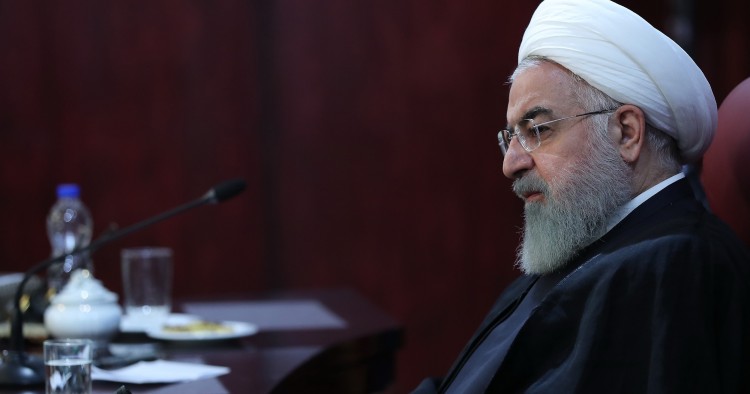This article was published on The National Interest.
In Washington, President Donald Trump’s decision to pull out U.S. forces from Syria continues to baffle. It is broadly considered to give the upper hand to three main actors involved in that country’s nearly eight-year long war: Russia, Iran and its allies, and Turkey. In the case of Iran, plenty of pundits in Washington seem sure that a U.S. withdrawal from Syria will only whet Tehran’s appetite for more foreign adventurism as it seeks to advance its regional agenda. That might bear out in the long term, but in the short term, the Iranians are evidently fairly anxious about developments and their fate in Syria.
Reaction in Tehran to U.S. Syria pullout
The initial reaction from Tehran to Trump’s decision to withdraw 2,000 U.S. troops from eastern Syria has been one of matter-of-fact but also of suspicion. On the one hand, many Iranian commentators simply painted the decision as a political move by an unpopular American president who likes to give himself a fighting chance to win a second term as president in 2020.
This school of thought in Tehran views Trump as someone who knows an open-ended American military commitment to Syria has many pitfalls. Not least, it has the potential to substantially reduce Trump’s chances for re-election had Washington been forced to expand its military operations in Syria. Among this group, there is also recognition that Trump’s decision has broad support in the United States, including many on the left. Many Americans do not support Trump’s overall foreign policy but believe the U.S. military has no persuasive strategic reason to stay in eastern Syria. In other words, Trump’s Syria decision was no fluke and is unlikely to be overturned. This reading in Tehran tallies well with many appraisals available in the United States on Trump’s Syria decision.
Other Iranian views, which likely are shared by many at the top ranks of the Islamist regime in Tehran, look at Trump’s decision not as a sudden or politically-driven calculation—and therefore based on poor strategic judgment. It is instead seen to be part of a judicious American plan to prolong the Syrian war.
These observers believe that Trump is pulling out of Syria as part of a plan to break the Iran-Turkey-Russia partnership by pulling Turkey out with the U.S. promise of giving Ankara a free hand to crack hard down on the Syrian Kurds, Ankara’s principal nemesis in Syria. In this view, the decision to pull out of Syria was not just a case of willy-nilly political theatrics by Trump. It is presented as a U.S. design to prolong the Syrian war and deprive Iran, Russia and the regime of Bashar al-Assad a chance to solve the conflict politically now that the opposition has largely accepted defeat on the battlefields. Still, this reading is tainted by its anti-U.S. biases and is borderline conspiratorial as is evident by the Secretary of Defense James Mattis’ resignation in protest against Trump’s decision to pull out of Syria.
Image: Iranian Presidency / Handout/Anadolu Agency/Getty Images
The Middle East Institute (MEI) is an independent, non-partisan, non-for-profit, educational organization. It does not engage in advocacy and its scholars’ opinions are their own. MEI welcomes financial donations, but retains sole editorial control over its work and its publications reflect only the authors’ views. For a listing of MEI donors, please click here.













